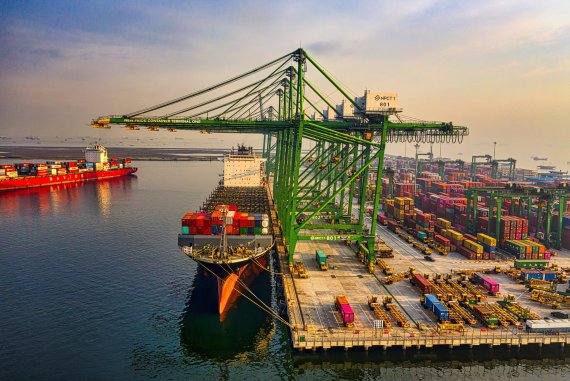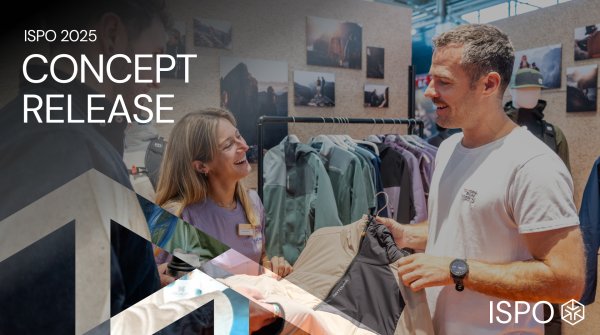
The good news is that the tasks ahead for the sports and outdoor industry are so complex and comprehensive that numerous representatives of retailers, brands and the European Outdoor Group (EOG) are calling for cooperation. "We can only solve this together. That is why we will publish our research results. We want to share the know-how we have built up over the past few months with the industry," said Debbie Read and Tim Fish of Equip Outdoor, for example, in a presentation on their sustainability report at OutDoor by ISPO 2023.
But what is it all about? The "Corporate Sustainability Due Diligence Directive (CSDD)", or EU Supply Chain Act for short, is expected to come into force in 2024. It affects all companies operating in the EU with at least 500 employees and a net turnover of at least 150 million euros. For this group, the regulation will become mandatory in 2026. The second group includes companies that have more than 250 employees and generate net sales of more than EUR 40 million. For them, the law will take effect in 2028.
The EU supply chain law provides for regulatory control including fines and civil liability. This means that companies are liable if they fail to meet their due diligence obligations and human rights are therefore violated or the environment is damaged. Basically, the regulation aims to require companies to align their business model and corporate strategy with limiting global warming to 1.5 °C in accordance with the Paris Climate Agreement. Regulatory authorities in EU member states are to monitor whether companies actually comply with the new regulations. They can levy fines of at least five percent of global sales.
To prove the correct implementation of the standards, brand owners must ensure the traceability of a product back to fourth-tier suppliers (TIER 4). In concrete terms, this means that brands must be able to prove, for example, whether pesticides were used in the cultivation of a hemp fiber. Data collection and analysis are mandatory prerequisites for this. Only with detailed information can weak points be identified, adjustments implemented and necessary certifications applied for by the EU. Or as Pascale Moreau from the consulting firm Ohana put it at OutDoor by ISPO: "No data, no compliance, no market!"
The question arises: how should the data be collected? "The supply chain ecosystem is so complex that traceability can become a case for a profiler," said Joel Svedlund at the outdoor trade show in Munich. And the Swedish sustainable development expert at Peak63 announced, "The EU will probably make 'Digital Product Passports' mandatory in 2027. Manufacturers need to prepare for this now!"
The industry receives support from associations such as the European Outdoor Group or the Outdoor Industry Associationfor example through various seals and initiatives, self-assessment tools such as the Higg Index or the measurement of CO₂ emissions and suggestions for their reduction. For example, the Sustainability Data Exchange Project (SDEX), which the EOG has been conducting together with the German Sporting Goods Industry Association since the beginning of 2023, addresses the problematic situation around the exchange of sustainability data at product level between brands and retailers. The aim is to standardize various attributes in order to enable customers to make more sustainable purchasing decisions.
In the "Carbon Reduction Project"the EOG is exploring ways to decarbonize supply chains. The project is an association of brands that want to identify common suppliers in order to discuss optional steps with them. Katy Stevens, Head of CSR & Sustainability at EOG, presented some figures from the project at OutDoor by ISPO. According to the figures, a supplier supplies an average of three to four brands. "One supplier even worked with 44 manufacturers," Stevens said - an effective lever to get action going. "The good news is that suppliers are highly willing to collaborate." CO₂ reductions of 50 to 60 percent are thus achievable in the relatively short term, he said.
David Eklund, CEO of Icebug, presented a pilot project at OutDoor by ISPO that became a success story in a very short time: Together with five U.S. apparel brands, Icebug funded a solar roof for a TIER 1 factory in Vietnam. "Eighty-five percent of emissions happen before the product leaves the factory," Eklund recited. To reduce them, he said, switching electricity to solar energy is the best recipe - and much easier to implement than optimizing heat production. A nice side effect: production costs dropped by 20 to 40 percent. Aku, Garmont and Mammut have joined the The Solar Rooftop Scaling Program. With assistance from Icebug and solar vendor BayWa these three outdoor brands have taken the first step to help their joint factory in Vietnam switch to solar energy. "This project shows that no company can do everything on its own. But by sharing information and dividing the time and costs, we can find solutions together."
 Sustainability4 tips to Green Deal-compliant packaging
Sustainability4 tips to Green Deal-compliant packaging
- Awards
- Mountain sports
- Bike
- Fitness
- Health
- ISPO Munich
- Running
- Brands
- Sustainability
- Olympia
- OutDoor
- Promotion
- Sports Business
- Textrends
- Triathlon
- Water sports
- Winter sports
- eSports
- SportsTech
- OutDoor by ISPO
- Heroes
- Transformation
- Sport Fashion
- Urban Culture
- Challenges of a CEO
- Trade fairs
- Sports
- Find the Balance
- Product reviews
- Newsletter Exclusive Area
- Magazine


